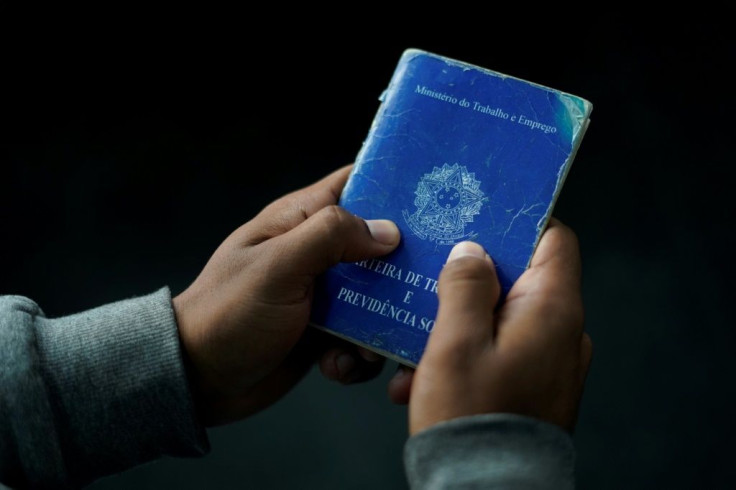Brazil Jobless Rate Hits Record 13.8%
Brazil's unemployment rate hit a record 13.8 percent from May to July as Latin America's biggest economy suffered the impact of the coronavirus pandemic, according to official figures released Wednesday.
The rate is the highest since the data set began in 2012, and two percentage points above the same period last year.
The previous record -- 13.7 percent -- was registered in the first quarter of 2017, on the back of the worst recession in Brazilian history.
There were 13.1 million people looking for work in July, IBGE said.
The number of people who dropped out of the work force -- a sign of how many have given up looking for jobs because of a lack of opportunities -- also hit a record, at 5.8 million, a 20-percent increase from the same period last year.
"Besides taking people's jobs, the pandemic made it difficult to look for work because of stay-at-home measures, business closures and health issues," said IBGE official Adriana Beringuy.
In all, Brazil lost 11.6 million jobs in a year, the institute said.
The South American giant of 212 million people has been hit hard by the new coronavirus, with nearly 143,000 people killed, the second-highest death toll worldwide after the United States.
Far-right President Jair Bolsonaro has attacked stay-at-home measures imposed by state and local authorities and insisted on getting the economy reopened.
But economists say the policy fight may only be adding to the economic damage. And health experts warn that many states are trying to exit lockdown too fast.

Brazil is facing a record recession this year. The central bank is currently predicting an annual contraction of 5.04 percent -- though the outlook has been improving steadily.
Two months ago, the forecast was for a contraction of 6.5 percent.
Brazil tumbled into recession in the second quarter of the year with a record plunge of 9.7 percent in Gross Domestic Product, after a contraction of 2.5 percent in the first quarter.
IBGE said at the time that the health crisis had set the nation's economy back to the same level as 2009, at the height of the global financial crisis.
However, some economic indicators are starting to show signs of recovery.
Industrial output increased eight percent from June to July.
Consumer spending is also on the rebound -- though that is largely thanks to emergency stimulus checks of 600 reais ($110) a month the government has been paying to around 60 million Brazilians, about a third of the population.
The payments were halved this month, and are set to expire at the end of the year.
Unlike the figures for production and consumption, however, "the labor market is still not showing consistent signs of recovery... which could restrict the future pace of the broader economic recovery," the central bank said this month.
© Copyright AFP 2024. All rights reserved.





















